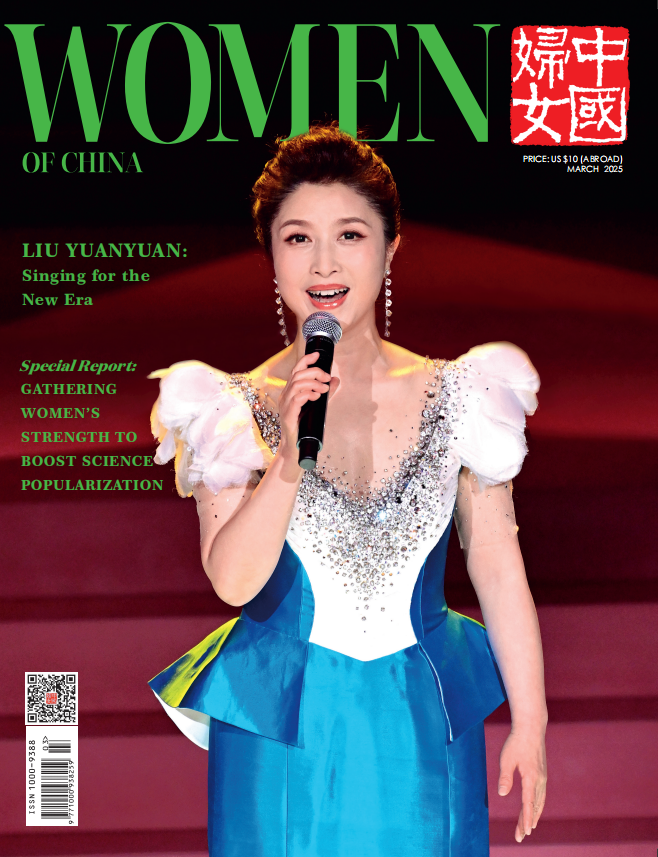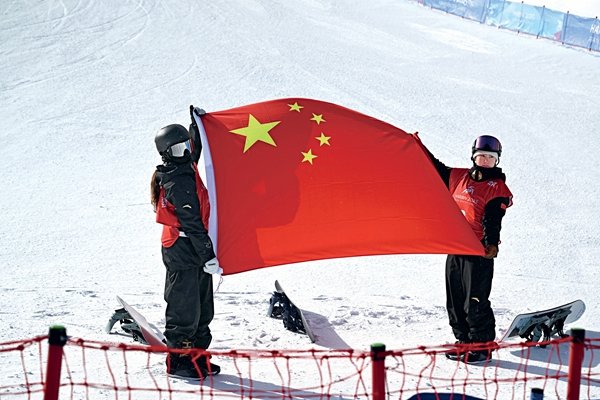Therapy Animals Helping Kids Adjust
Medical group sets up centers to assist learning-disabled children with their social development in Dalian, Liaoning
A pediatric hospital in Dalian, Liaoning Province, demonstrated the value of animals in therapy on May 31 as children interacted with two therapy dogs and two trained horses.
The activity included children who attend early education classes or receive regular health examinations, among them a number of autistic children.
The Dalian Women and Children's Medical Group, a large hospital association, established the city's first practice center to provide targeted training primarily to children diagnosed with autism spectrum disorder.
"We hope to improve the rehabilitation system for children with ASD in Dalian using local resources," said Wang Daqing, head of the group.
The training blends resources from social groups and nonprofit associations and has been supported by the local health commission, the local disabled persons' federation, a charity organization and a number of other support groups.
When the program was launched on May 22, the hospital signed contracts with the China Guide Dog Training Center in Dalian, Dalian Laohutan Ocean Park and the Qingshan Huayuan stable and equestrian club.
According to Sun Jin, director of the group's children's health clinic, there is no specific drug to treat the core symptoms of autism. The main methods of treatment are psychological and behavioral intervention, rehabilitation training and special education.
The group has set up a dozen rehabilitation training programs offering systematic and individualized rehabilitation for autistic children.
"Through the practice center, we will regularly make it possible for autistic children to engage with therapy animals and nature and learn about different social environments," she said.
Purposeful contact with animals not only helps autistic children, but also helps children in general, as well as those with learning difficulties or poor concentration, Sun said.
She said that an estimate of the prevalence of autism in China is 7 percent and that the annual number of births in Dalian is about 40,000.
"We've found many cases of autism during the course of physical examinations," Sun said.
The Dalian Women and Children's Medical Group has six campuses and branches. Its Changjiang Road branch is a national demonstration center for early childhood development and one of the first demonstration units for the national standardized project for the prevention and treatment of autism.
This branch, which deals with nearly 90,000 people a year, treats 800 outpatient cases of autism.
"After acquiring certain cognitive skills, autistic children also need deeper training in social integration to improve their social adaptability," Sun said.
She said the center will also work with education institutions, libraries, supermarkets and factories to facilitate the social integration of autistic children. "On a regular basis, we will arrange for autistic children to visit companies and institutions and spend time with therapeutic animals and nature so they can understand different aspects of life and social environments," she said.
The activities have been warmly welcomed by both the children and their parents.
Liu Xiaoshan, 34, whose daughter is developmentally challenged, said she knew that animal-assisted therapy could reduce her child's anxiety and help her develop social skills.
She said that though her daughter has made progress after going to the hospital regularly for more than three years, she still has trouble interacting socially. "Guide dogs, horses and dolphins are nonaggressive and can communicate silently with children. I often take my daughter to the aquarium, but we cannot get close to the dolphins," Liu said. "I am very excited about the effectiveness of animal-assisted therapy. I hope my daughter is able to benefit from the center."
(Source: China Daily)
Please understand that womenofchina.cn,a non-profit, information-communication website, cannot reach every writer before using articles and images. For copyright issues, please contact us by emailing: website@womenofchina.cn. The articles published and opinions expressed on this website represent the opinions of writers and are not necessarily shared by womenofchina.cn.








.jpg)

 WeChat
WeChat Weibo
Weibo 京公网安备 11010102004314号
京公网安备 11010102004314号